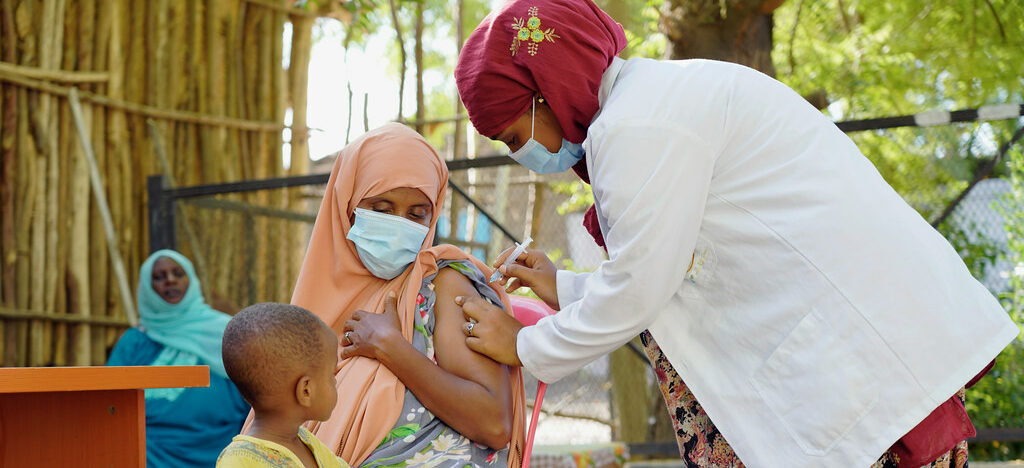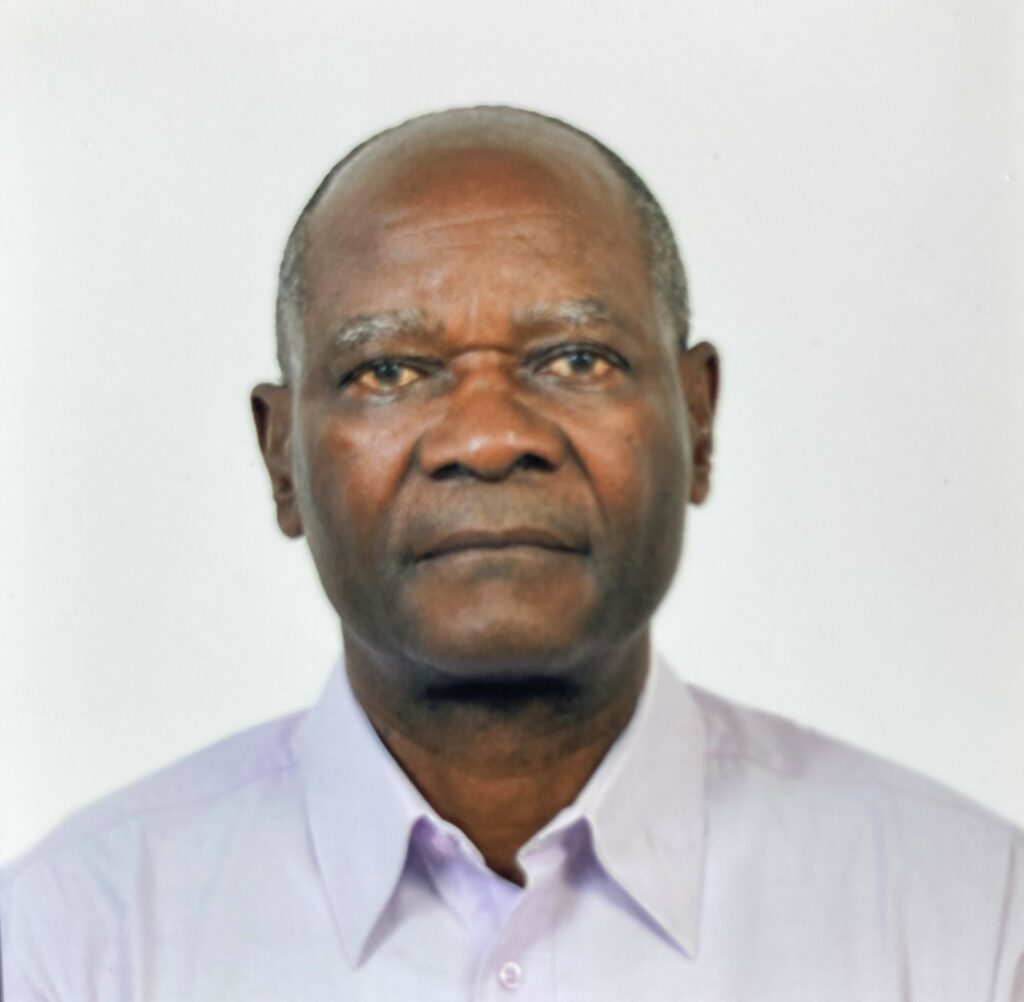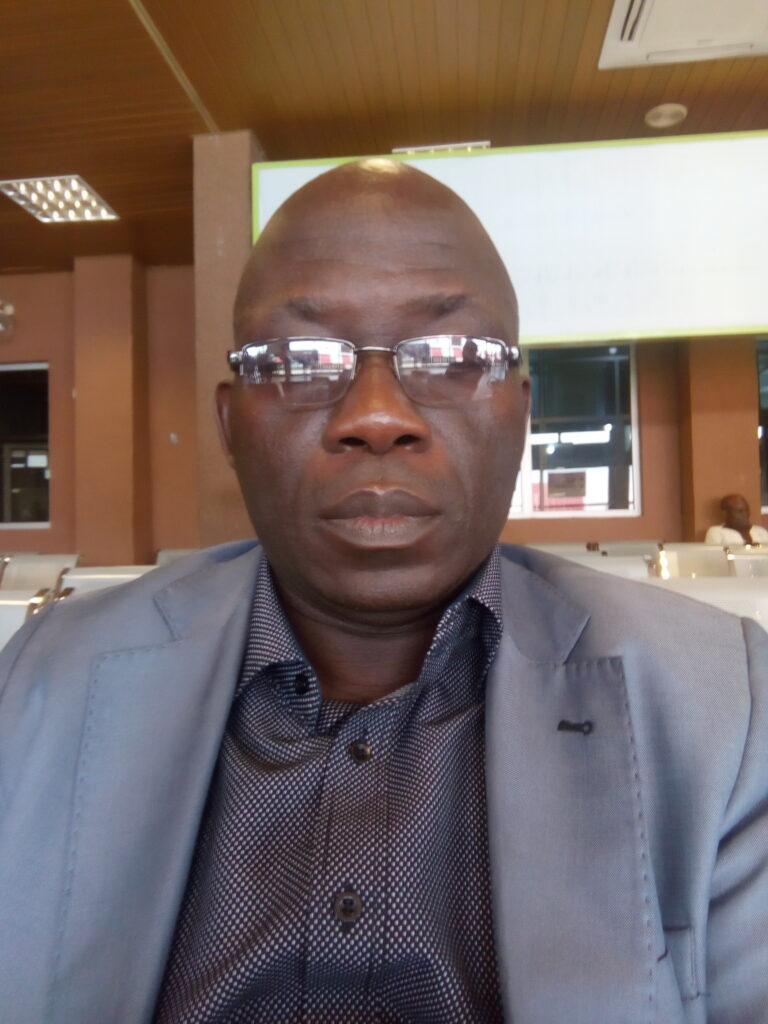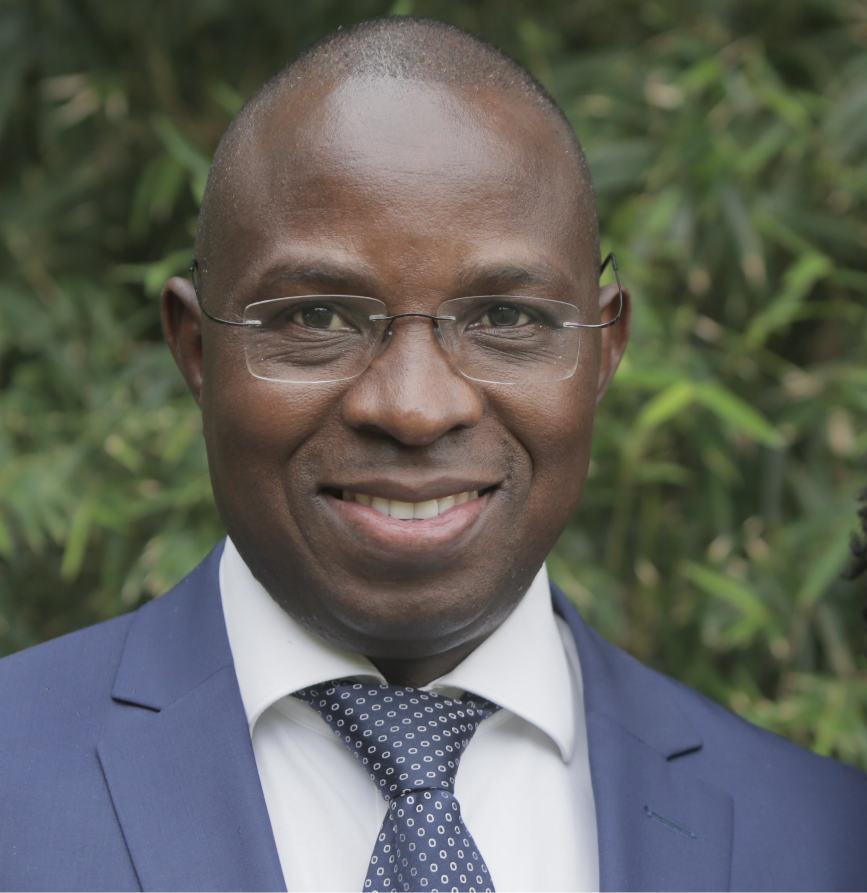Rising to the Challenge: How MOMENTUM Is Helping Partner Countries Introduce the COVID-19 Vaccine
Published on April 27, 2021

The past year has seen unprecedented progress in developing safe, effective COVID-19 vaccines at a record pace and introducing them throughout the world. Countries like the Democratic Republic of the Congo (DRC) and Mozambique have taken extraordinary steps to quickly introduce COVID-19 vaccines, developing new policies and national vaccination plans, activating working groups to address new program needs, training health workers, launching health communication efforts, and preparing the supply chain for new vaccines.
However, these accomplishments also come with challenges. To understand how MOMENTUM can help countries overcome challenges with introducing the COVID-19 vaccine, we spoke with MOMENTUM immunization staff in the DRC and Mozambique, where MOMENTUM works with the Ministries of Health and other partners to support COVID-19 vaccine introduction in each country.
In the DRC, we spoke with André Tonda, immunization technical advisor, and Christophe Okoko Alimasi, social and behavior change communication consultant, about ways they are supporting vaccine introduction. In early March, the DRC received 1.7 million doses of the AstraZeneca vaccine via the global COVAX vaccine-sharing program. Vaccine roll-out began in April, initially prioritizing three groups: health workers, people 55 years and over, and people with co-existing conditions such as diabetes, hypertension, asthma, kidney disease, tuberculosis, and HIV.
We also spoke with Betuel Sigaúque, MOMENTUM country director in Mozambique. In early March, the country received over 480,000 doses of the AstraZeneca vaccine through COVAX and bilateral deals with India. Mozambique started vaccinating health workers with the AstraZeneca vaccine late in March.
Interviews have been edited for brevity and clarity.
What kind of challenges are countries facing in vaccinating priority groups (health workers, the elderly, and people with co-existing conditions)?

Christophe (DRC): False information and fake news have created fear among priority groups and the general population. The denial of COVID-19 as a disease and the suspicion that authorities are benefiting themselves through the response and vaccination have a negative impact on public perceptions of the disease and the vaccine. The lack of trust in officials, health structures, and organizations negatively impacts community engagement. The lack of community engagement is reflected in the number of people unwilling to receive the COVID-19 vaccine, including health workers and scientists.
Betuel (Mozambique): [Challenges include] lack of financial resources for operational vaccination costs, delay in transmitting vaccination data to the health information system, and the absence of health providers leading to overcrowding of patients in some health facilities. The lack of estimates of the population size of priority groups (e.g., health workers, people with co-existing conditions, student trainees in health courses, adults in accommodation centers, prisoners and prison officials, police, and teachers) hinders planning and monitoring of vaccination performance. There is also vaccine refusal due to lack of information and lack of communications to create demand for the vaccine.
“False information and fake news have created fear among priority groups and the general population.”
How are you supporting a smooth vaccine introduction?
Christophe (DRC): Through various health communication efforts, we hope to increase demand for the vaccine among priority groups. We plan to recruit 100 peer educators from each of the priority groups and organize a briefing for peer educators, who will then host peer awareness sessions. We will also work with media professionals (radio-TV, blog, print), comedians, and musicians to spread messages about the benefits of getting the COVID-19 vaccine.

André (DRC): I represent the MOMENTUM Routine Immunization Transformation and Equity project as a member of the COVID-19 Vaccination Service Delivery Subgroup of the National Committee, which coordinates the process of introducing the new vaccine. I helped prepare the DRC proposal submitted to Gavi as well as the plan to introduce the vaccine. I also support the implementation of the plan, particularly developing tools for assessing the level of preparedness of vaccination sites. Currently, I am drafting the module for training the trainers, which will be used to train health workers on the COVID-19 vaccine, including its characteristics, storage requirements, dosage, administration, side effects, and documentation of doses. I am also developing communication messages to promote the vaccine and answer questions from clients.
Betuel (Mozambique): I support planning and coordination with the Ministry of Health (MOH) [in Mozambique] and other immunization stakeholders. I also provide technical support to the design of service delivery strategies for the COVID-19 vaccine, including best approaches for reaching non-traditional priority populations (e.g., the elderly) rather than the traditional populations (e.g., children under-five, pregnant women) reached by routine immunization services. To introduce the vaccine, I helped develop the surveillance and monitoring framework to monitor the implementation of the National Deployment and Vaccination Plan (NDVP). This framework included a set of recommended indicators to monitor COVID-19 cases, assess the impact of vaccinations, maintain a daily summary of vaccination sessions with key vaccination indicators, and track adverse events following immunization.
“The DRC has developed new tools for data collection, training, and communication. The country is also expanding its cold chain capacity to store the vaccine at appropriate temperatures.”
What has your country accomplished thus far to prepare for and introduce the COVID-19 vaccine?

Betuel (Mozambique): The NDVP was finalized and disseminated, a training package was adapted, and training has been provided for the vaccinators and vaccine logisticians at the district level. Health information and vaccine logistics databases were updated to allow for real-time, individual vaccination data entry and to include data for COVID-19 vaccine stock management. We also adapted tools to assist the microplanning process in identifying priority groups for vaccination and developed and disseminated messages on COVID-19 vaccines.
André (DRC): The DRC has developed new tools for data collection, training, and communication. The country is also expanding its cold chain capacity to store the vaccine at appropriate temperatures. Staff from 11 hospitals in Kinshasa have been trained and are ready to begin vaccination, and data managers have been trained on tools for COVID-19 vaccination data collection.
What challenges do you anticipate in the future, and how can USAID help countries overcome them?
André (DRC): When the DRC first developed the plan, it was to receive the vaccine in early April, but they received it in March. Identifying the elderly and people with co-existing conditions is a big challenge. In provinces where USAID is already working, they could support provinces to implement their strategies for reaching priority groups.
Betuel (Mozambique): USAID can, through its implementing partners, provide technical support for microplanning at subnational levels and support supervision of the process and improve monitoring.
Ensuring Equitable Access to Vaccines
To continue to overcome these challenges and successfully introduce the COVID-19 vaccine, countries will need sustained financial and technical support to ensure that everyone has access to these lifesaving vaccines. Click here to learn more about the work MOMENTUM is doing in immunization.
MOMENTUM Routine Immunization Transformation and Equity supports the Ministry of Health/Expanded Programme on Immunization (MOH/EPI) and works with partners in the DRC and Mozambique to strengthen vaccination introduction and respond to emerging priorities. In the DRC, our team is supporting vaccination strategies and developing communication materials, including interpersonal communication resources for health workers and education and advocacy activities, to reach priority populations. In Mozambique, our proposed technical assistance involves support for decision-making on selecting vaccine products and allocation strategies as more vaccines become available, planning and coordinating tailored supply chain approaches and comprehensive capacity building for health workers throughout the phases of vaccine introduction.

